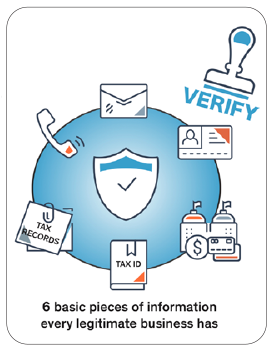
By AMY DRUMM, MRA Vice President, Government Affairs
A recent Wall Street Journal article (“Ben Dugan Works for CVS. His Job Is Battling a $45 Billion Crime Spree.”) highlighted an increasing criminal problem that many retailers continue to battle that starts in their stores and moves to easy-to-hide-behind, online marketplace storefronts.
Organized Retail Crime, or ORC for short, is a multi-billion-dollar criminal enterprise involving well-connected and sophisticated criminal boosters who hire those down on their luck looking for quick cash to steal lists of items from retail stores. Those doing the actual stealing are typically paid 5% to 10% of retail value to a street-level fence, who then sells the products to a larger-scale distributor. The distributors are reselling items on mostly unregulated, online marketplaces where they can quickly and anonymously move the stolen products instead of using flea markets, corner stores and pawn shops as seen in the past.
ORC costs retailers an average of $719,548 per $1 billion in sales, resulting in $45 billion in total losses. That number keeps growing each year, but has recently ballooned, with one retailer estimating a 30% increase since the pandemic began. In Michigan, 78% of MRA members reported being a victim of ORC in 2020 and 39% reported that thefts increased in 2020. While retail losses can increase costs to cover increased asset protection needs and lost revenue, retailers are very concerned about protecting their employees from dangerous criminals who have gotten more desperate. They also want to keep consumers safe while shopping in their stores and protected from buying potentially unsafe, expired or tampered with products online.
 Criminal ORC operations often help fund other criminal activity including human trafficking and the drug trade so stopping ORC benefits the larger community and can help solve other, seemingly unconnected crimes. In New Mexico, the attorney general’s investigation into an ORC case led to the conviction of a human trafficking ring.
Criminal ORC operations often help fund other criminal activity including human trafficking and the drug trade so stopping ORC benefits the larger community and can help solve other, seemingly unconnected crimes. In New Mexico, the attorney general’s investigation into an ORC case led to the conviction of a human trafficking ring.
Anonymity on online marketplaces allows criminals to hide their identity from both customers and law enforcement while setting up multiple accounts, making it far more difficult to track illicit goods and shut down organized crime. This is exactly why states need to take steps to provide consumers and law enforcement the transparency and information necessary to catch criminals who are trying to deceive consumers into buying expired, unsafe, fraudulent, counterfeit and stolen items.
Michigan should pass INFORM (integrity, notification and fairness in online retail marketplaces) legislation requiring online marketplaces to collect and annually verify six basic pieces of basic information that every legitimate seller should have. This information would only be requested from high-volume sellers (sellers with 200 or more transactions or more than $5,000 in annual sales) and must be verified before they are given access to list products for sale. Requesting the same information found on a business card be made available to consumers shouldn’t be considered a burden for sellers or marketplaces. Asking marketplaces to take some responsibility for the products sold on their platform is no different than the responsibility retailers take when placing products on their store shelves.
In fact, this legislation, scheduled to be introduced this fall, should help legitimate businesses by proving and enhancing the reputation of these small sellers and entrepreneurs since scammers and criminal elements will be removed. This means legitimate businesses selling online will no longer be forced to compete with criminals selling knockoffs or stolen goods.
Passing INFORM legislation should help restore consumer confidence in the safety and legitimacy of products purchased. It will prevent potentially higher retail prices or reduced store access as retailers cut hours and close locations in higher-crime areas. Reducing the amount of theft means retail employees and customers will be safer when shopping in person. It will also give law enforcement the information and tools they need to stop ORC and criminal activity connected to ORC.
For more information visit buysafeamerica.org.
